Salt of the Earth
In this way, I said, the scientific insights of theoretical biologist Stuart Kauffman, set forth in At Home in the Universe, furnish "a point of tangency between the theory of evolution 'beyond Darwin' and the wisdom of one of our major faith traditions." Now I would like to explore at least one of the theological implications of that point of tangency.
In Matthew 5:13, just after the "Blessed are ... " beatitudes, Jesus tells his flock, "You are the salt of the earth. But if the salt loses its saltiness, how can it be made salty again? It is no longer good for anything, except to be thrown out and trampled by men" (translation: New American Bible for Catholics).
Salt was in those days, in the times before refrigeration, used to preserve meat, to keep it from spoiling. In Jesus' era, the Jews as a nation were in desperate need of preservation. They were under the heel of the Roman emperor, and, indeed, only a few decades after the Gospel events, they would lose their war of independence with Rome and be scattered. Knowing they were in extremis as a free nation and an independent people, many Jews looked imminently for the long-promised messiah.
The Gospels make it clear that Jesus (whom Christians believe was that messiah) thought the ancient religious practices of his fellow Jews had gone wrong. Instead of unity, rich with poor, the wealthy and powerful were scapegoating the poor and afflicted, claiming their poverty and infirmity betokened God's punishment of these individual Jews — and by extension all Jews and the whole Jewish nation — for their sins. If we read between the lines, Jesus' "preferential option" for the weak and the weary was the message he sent, among other ways, by opting to take his meals with outcasts.
We, of course, find echoes of this early form of Jesus' heroism in our Robin Hood stories.
 |
| Albert Nolan's Jesus Before Christianity |
Seen in the light of Stuart Kauffman's dynamical systems, the implications are profound. These systems contain a plethora of individuals (or individual subsystems, the equivalent of "nations"). Each individual or nation wants to live long and prosper. To do this, it needs to evolve to a "peak" on an abstract "fitness landscape" where hills and mountains represent high Darwinian fitness, and dales and valleys betoken low Darwinian fitness.
Here's the crucial thing: the fitness of the system as a whole — its survivablity, as it were — depends on the individuals and nations not retreating so far up their own traditional fitness peaks as to cut off communication with those on other peaks.
Why? Because, in ways Kauffman lays out semi-mathematically, those entity-to-entity, peak-to-peak interchanges make the system stronger. For example, in a biological ecosystem the interactions of the various member species allow the ecosystem to gravitate back to the fecund edge of chaos, should a catastrophe bring the onset of chaos.
But if some members of the system completely shun other system members, eschewing dialogue and interchange, the system becomes brittle, not supple. The next catastrophe is apt to take it down the tubes.
Such member-to-member dialogue within a living dynamical system is yet more powerful than that. Kauffman shows that by virtue of it, the members "co-evolve." They learn better and better survival strategies as they adapt in response to others' adaptations.
This process of co-evolution, Kauffman reveals, even causes the fitness landacape itself to change. What were peaks can become valleys, and vice versa. Anyone who insists on not changing with the times is apt to disappear from the scene.
The Jewish nation — but, thankfully, not the Jewish people — disappeared in about 70 A.D., after the siege and fall of Jerusalem, at about the time Christians were ceasing to call themselves a Jewish sect and were beginning to worship Jesus, not just as the longed-for messiah, but as true God come to earth. Yet I don't intend this as a retrospective "I told you so" story. I intend it to suggest, rather, the Jesus was a very wise man. He didn't need computer models and cyber-simulations to tell him that solidarity is powerful and dialogue is divine. He simply knew.
The theologcial implication is clear. If, as Christians or as members of any other religion, we entrench ourselves behind ideological fortress walls on what is, or used to be, a much-vaunted fitness peak, we risk that the co-evolution going on around us will change the landscape, level our peak, and crumble our walls.
Now, to furnish a concrete example — and to risk the scorn of theological conservatives — I refer you to two posts I made to my A World of Doubt blog: Cardinal Keeler's Boycott and Of Pedestals and Fulcrums. The point of both was to criticize my local archbishop, Cardinal William Keeler, for refusing to share the stage at Loyola College's recent commencement exercises with New York City's ex-mayor Rudy Giuliani.
Giuliani was asked to furnish the keynote address in honor of his courageous leadership in the wake of the 9/11 World Trade Center attack, which occurred just as these graduates were beginning as freshmen. But Giuliani had gone on record, as a public official, as supporting women's abortion rights, however much he privately disapproves of abortion. So the Baltimore Archdiocese announced it would send no representative to the graduation ceremony of a Catholic instution of higher learning within its jurisdiction.
Not that the festivities would include words from Keeler or any of his minions, for archdiocese representatives do no customarily speak at Loyola graduations. Still, the cold shoulder was a symbolic way of saying no to dialogue with lay Catholic public servants who, like Giuliani and last year's presidential also-ran, Senator John Kerry, feel they should uphold the law of the land — which, since Roe v. Wade in 1973, permits abortions.
"No to dialogue" is not a salt-of-the-earth strategy. Dialogue and solidarity, not stiffness and self-righteousness, even in the most godly of causes, are the only way the salt which has "lost its saltiness" can be made salty again. They are the one way that systems threatened by chaos, dissolution, and death can be restored to life and health.






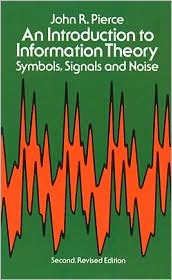

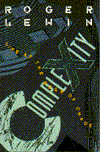

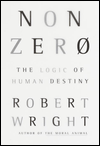

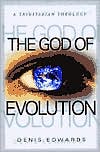

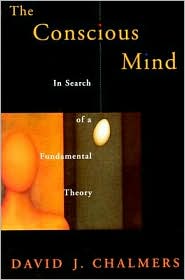
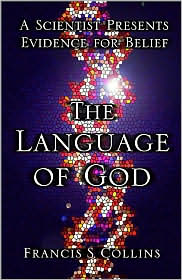


0 Comments:
Post a Comment
<< Home